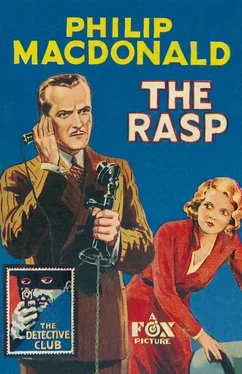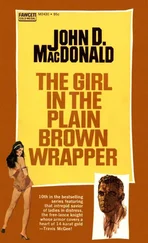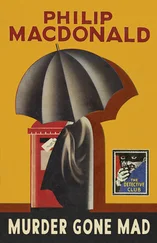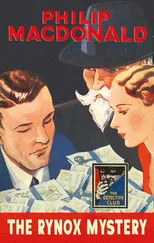He had driven at once to The Owl ’s headquarters, had arranged matters with Hastings within ten minutes, and had then telephoned to a friend—an important official friend. To him Anthony had outlined, sketchily, the scheme, and had been given in reply a semi-official ‘Mind you, I know nothing about it if anything happens, but get ahead’ blessing. He had then driven back to his flat, packed a bag, left a note for his man, and set out for Marling in Surrey.
From his official friend he had gathered that once on the right side of Miss Hoode his way was clear. As he drove he pondered. How to approach the woman? At any mention of the Press she would be bound to shy. Finally, he put the problem to one side.
The news of John Hoode’s death had not moved him, save in the way of a passing amazement. Anthony had seen too much of death to shed tears over a man he had never known. And the Minister of Imperial Finance, brilliant though he had been, had never seized the affections of the people in the manner of a Joe Chamberlain.
Passing through Haslemere, Anthony, muttering happily to himself ‘Now, who did kill Cock Robin?’ was struck by a horrid thought. Suppose there should be no mystery! Suppose, as Hastings had suggested, that the murderer had already delivered himself.
Then he dismissed the idea. A Cabinet Minister murdered without a mystery? Impossible! All the canons were against it.
He took his car along at some speed. By ten minutes to eight he had reached the Bear and Key in Marling High Street, demanded a room and breakfast, and had been led upstairs by a garrulous landlord.
II
Bathed, shaved, freshly clothed and full of breakfast, Anthony uncurled his thin length from the best chair in the inn’s parlour, lit his pipe, and sought the garden.
Outside the door he encountered the landlord, made inquiry as to the shortest way to Abbotshall, and placidly puffing at his pipe, watched with enjoyment the effect of his question.
The eyes of Mr Josiah Syme flashed with the fire of curiosity.
‘’Scuse me, sir,’ he wheezed, ‘but ’ave you come down along o’ this—along o’ these ’ appenings up at the ’ouse?’
‘Hardly,’ said Anthony.
Mr Syme tried again. ‘Be you a ’tective, sir?’ he asked in a conspiratorial wheeze. ‘If so, Joe Syme might be able to ’elp ye.’ He leant forward and added in a yet lower whisper: ‘My eldest gel, she’s a nouse-maid up along Abbotshall.’
‘Is she indeed,’ said Anthony. ‘Wait here till I get my hat; then we’ll walk along together. You can show me the way.’
‘Then—then—you are a ’tective, sir?’
‘What exactly I am,’ said Anthony, ‘God Himself may know. I do not. But you can make five pounds if you want it.’
Mr Syme understood enough.
As they walked, first along the white road, then through fields and finally along the bank of that rushing, fussy, barely twenty-yards wide little river, the Marle, Mr Syme told what he knew.
Purged of repetitions, biographical meanderings, and excursions into rustic theorising, the story was this.
Soon after eleven on the night before, Miss Laura Hoode had entered her brother’s study and found him lying, dead and mutilated, on the hearth. Exactly what the wounds were, Mr Syme could not say; but by common report they were sufficiently horrible.
Before she fainted, Miss Hoode screamed. When other members of the household arrived they found her lying across her brother’s body. A search-party was at once instituted for possible murderers, and the police and a doctor notified. People were saying—Mr Syme became confidential—that Miss Hoode’s mind had been unhinged by the shock. Nothing was yet known as to the identity of the criminal, but—(here Mr Syme gave vent to many a dark suggestion, implicating in turn every member of the household save his daughter).
Anthony dammed the flow with a question. ‘Can you tell me,’ he asked, ‘exactly who’s living in the house?’
Mr Syme grew voluble at once. Oh, yes. He knew all right. At the present moment there were Miss Hoode, two friends of the late Mr Hoode’s, and the servants and the young gent—Mr Deacon—what had been the corpse’s secretary. The names? Oh, yes, he could give the names all right. Servants—his daughter Elsie, housemaid; Mabel Smith, another housemaid; Martha Forrest, the cook; Lily Ingram, kitchen-maid; Annie Holt, parlour-maid; old Mr Poole, the butler; Bob Belford, the other man-servant. Then there was Tom Diggle, the gardener, though he’d been in the cottage hospital for the last week and wasn’t out yet. And there was the chauffeur, Harry Wright. Of course, though, now he came to think of it, the gardener and the chauffeur didn’t rightly live in the house, they shared the lodge.
‘And the two guests?’ said Anthony. It is hard to believe, but he had assimilated that stream of names, had even correctly assigned to each the status and duties of its owner.
‘One gent, and one lady, sir. Oh, and there’s the lady’s own maid, sir. Girl with some Frenchy name. Duboise, would it be?’ Mr Syme was patently proud of his infallibility. ‘Mrs Mainwaring the lady’s called—she’s a tall, ’andsome lady with goldy-like sort of ’air, sir. And the gent’s Sir Arthur Digby-Coates—and a very pleasant gent he is, so Elsie says.’
Anthony gave a start of pleasure. Digby-Coates was an acquaintance of his private-secretarial days. Digby-Coates might be useful. Hastings hadn’t told him.
‘There be Habbotshall, sir,’ said Mr Syme.
Anthony looked up. On his left—they had been walking with the little Marle on their right—was a well-groomed, smiling garden, whose flower-beds, paths, pergolas and lawns stretched up to the feet of one of the strangest houses within his memory.
For it was low and rambling and shaped like a capital L pushed over on its side. Mainly, it was two storeys high, but on the extreme end of the right arm of the recumbent L there had been built an additional floor. This gave it a gay, elfin humpiness that attracted Anthony strangely. Many-hued clouds of creeper spread in beautiful disorder from ground to half-hidden chimney-stacks. Through the leaves peeped leaded windows, as a wood-fairy might spy through her hair at the woodcutter’s son who was really a prince. A flagged walk bordered by a low yew hedge ran before the house; up to this led a flight of stone steps, from the lower level of the lawns. Opposite the head of the steps was a verandah.
‘This here, sir,’ explained Mr Syme unnecessarily, ‘is rightly the back of the ’ouse.’
Anthony gave him his congé and a five-pound note, hinting that his own presence at Marling should not be used as a fount for bar-room gossip. Mr Syme walked away with a gait quaintly combining the stealth of a conspirator and the alertness of a great detective.
Anthony turned in at the little gate and made for the house. At the head of the steps before the verandah he paused. Voices came to his ear. The tone of the louder induced him to walk away from the verandah and along the house to his right. He halted by the first ground-floor window and listened, peering into the room.
Inside stood two men, one a little round-shouldered, black-coated fellow with a dead-white face and hands that twisted nervously; the other tall, burly, crimson-faced, fierce-moustached, clad in police blue with the three stripes of a sergeant on his arm.
It was the policeman’s voice that had attracted Anthony’s attention. Now it was raised again, more loudly than before.
‘You knows a blasted sight more o’ this crime than you says,’ it roared.
The other quivered, lifted a shaking hand to his mouth, and cast a hunted look round the room. He seemed, thought Anthony, remarkably like a ferret.
Читать дальше












